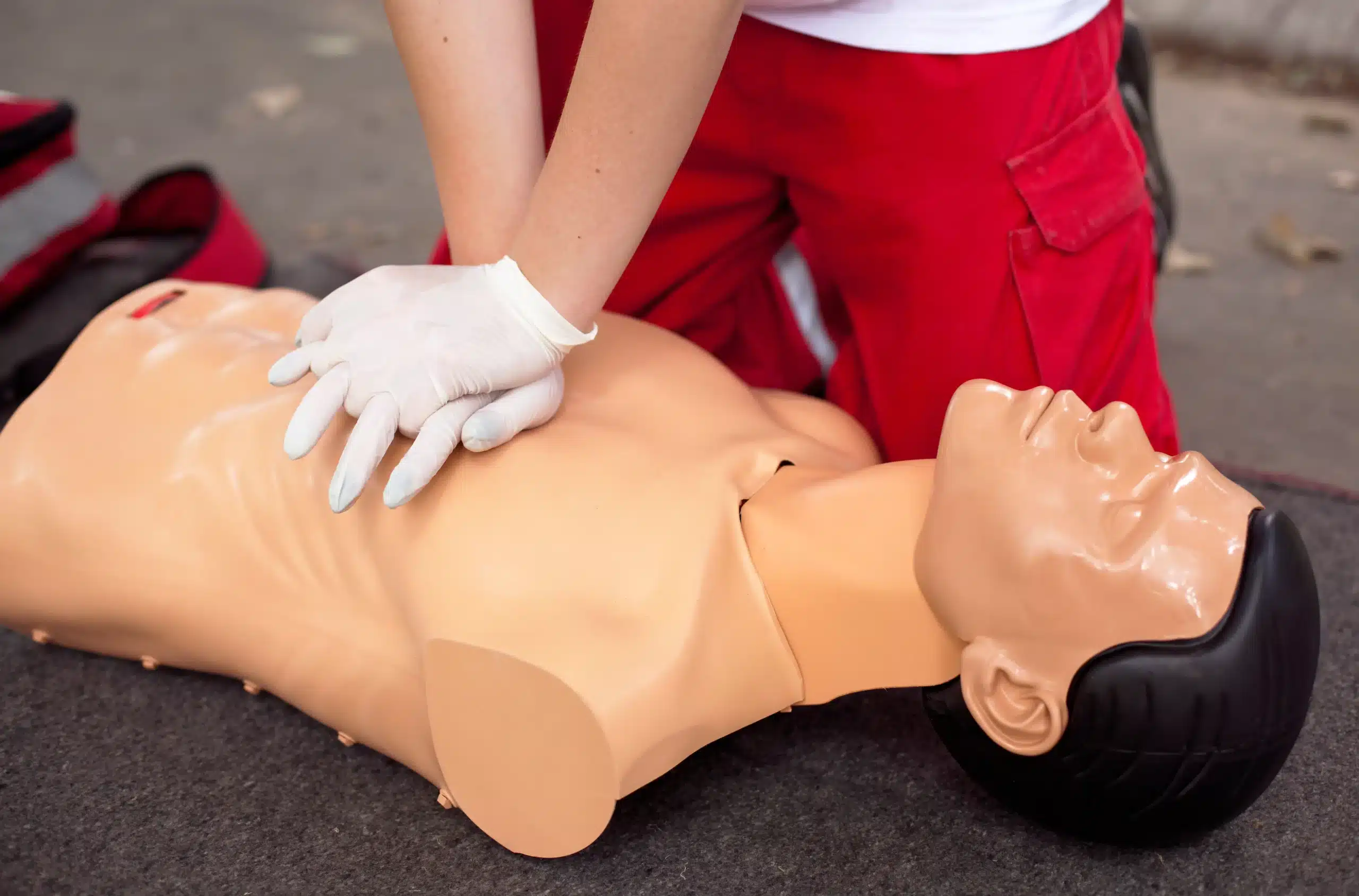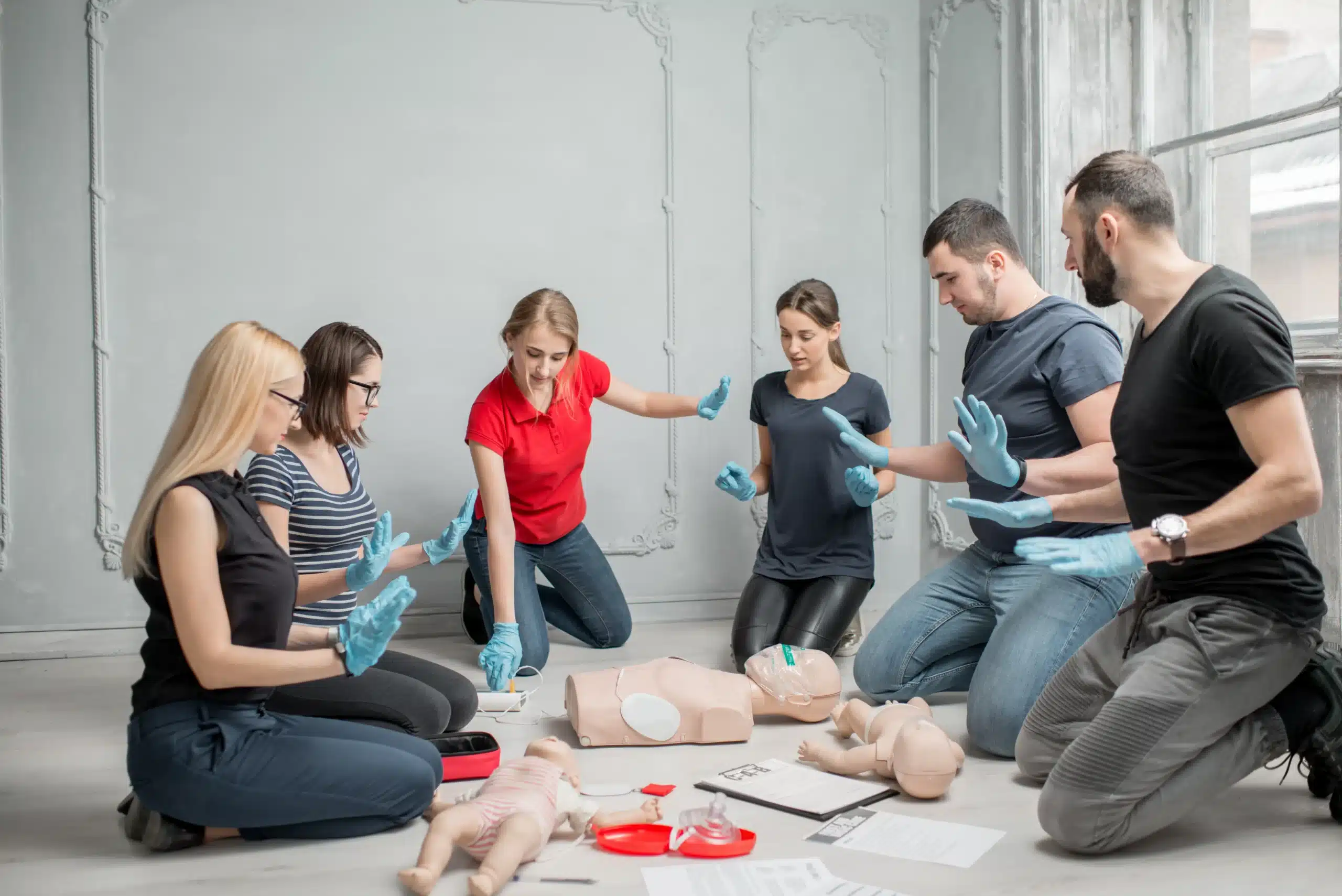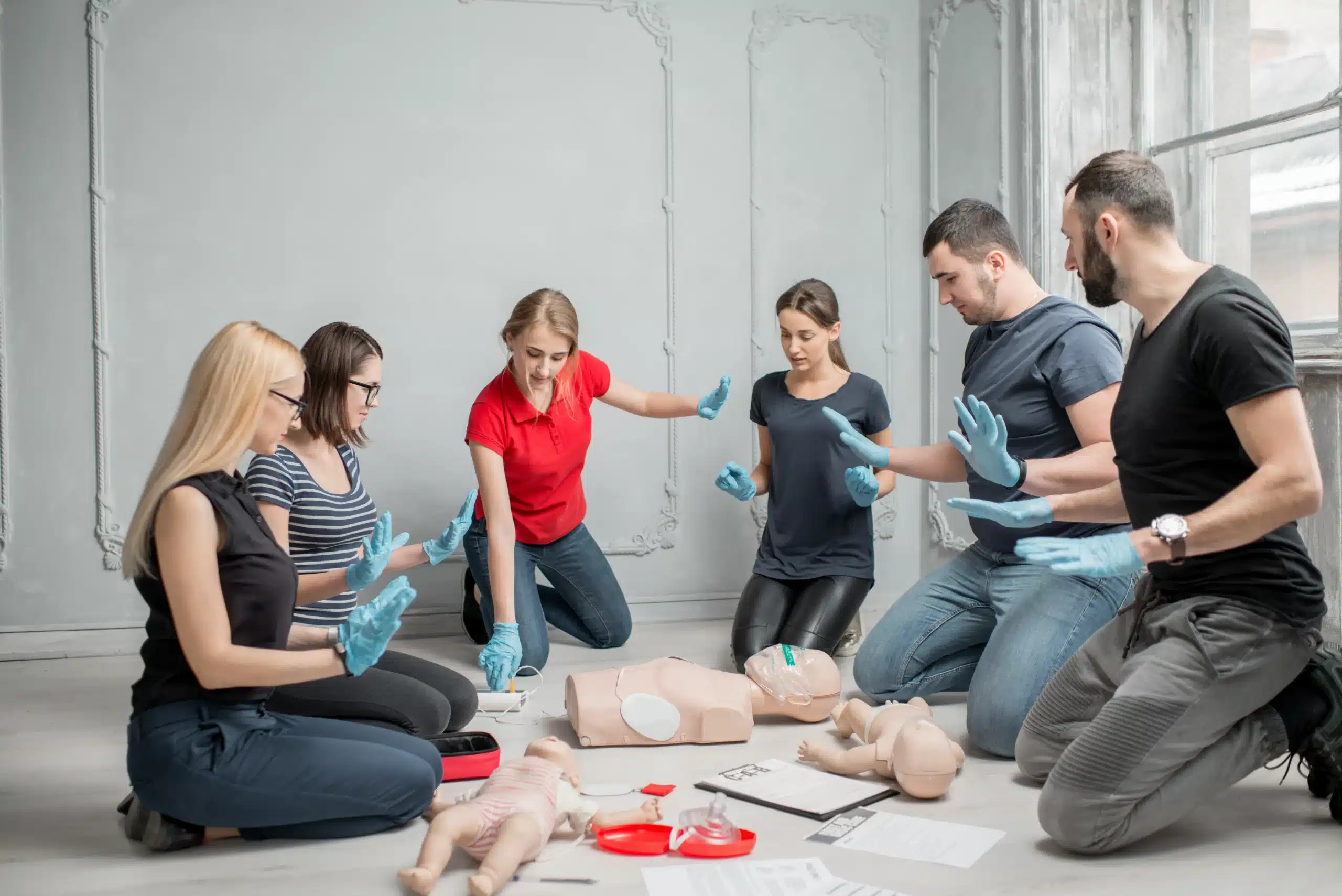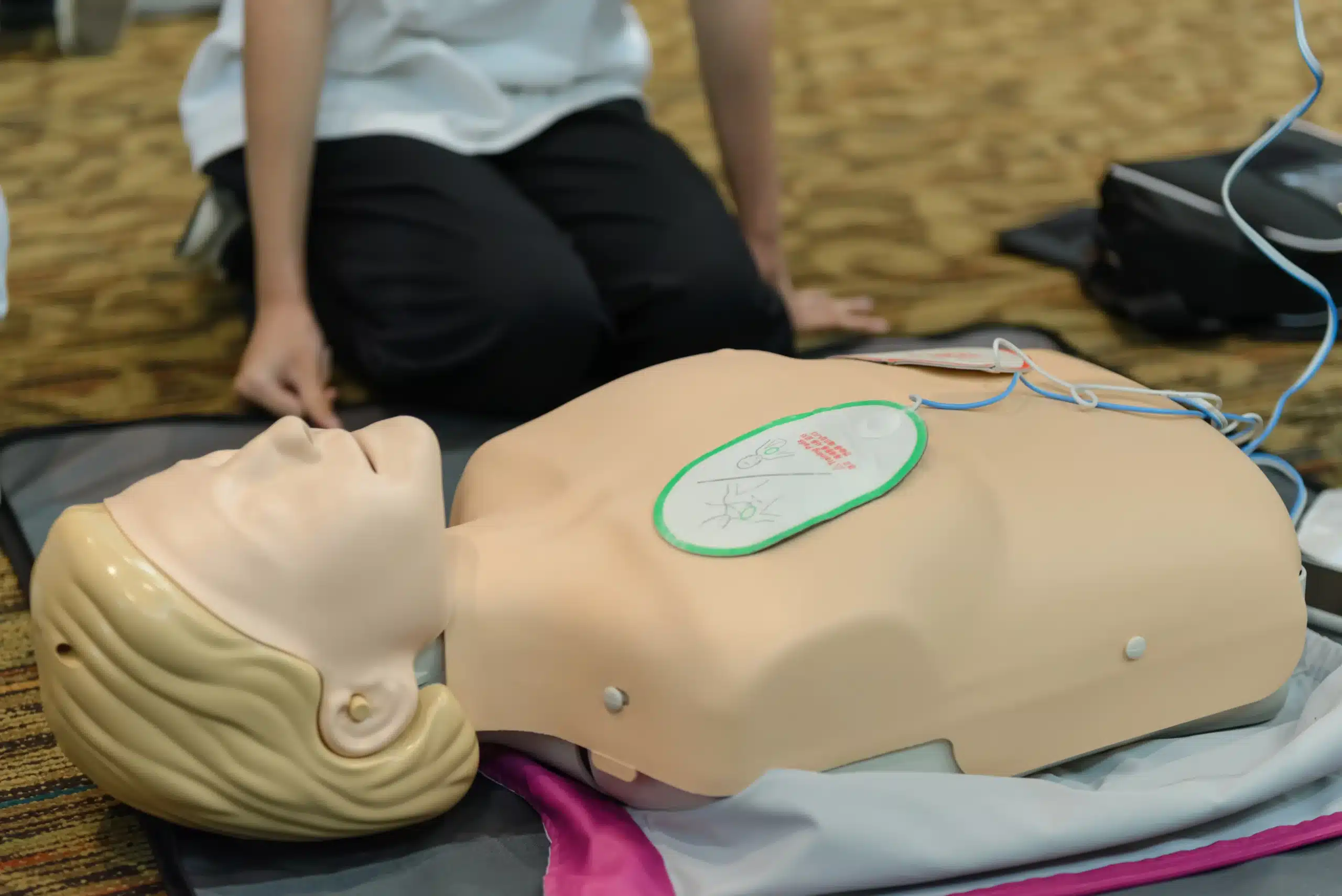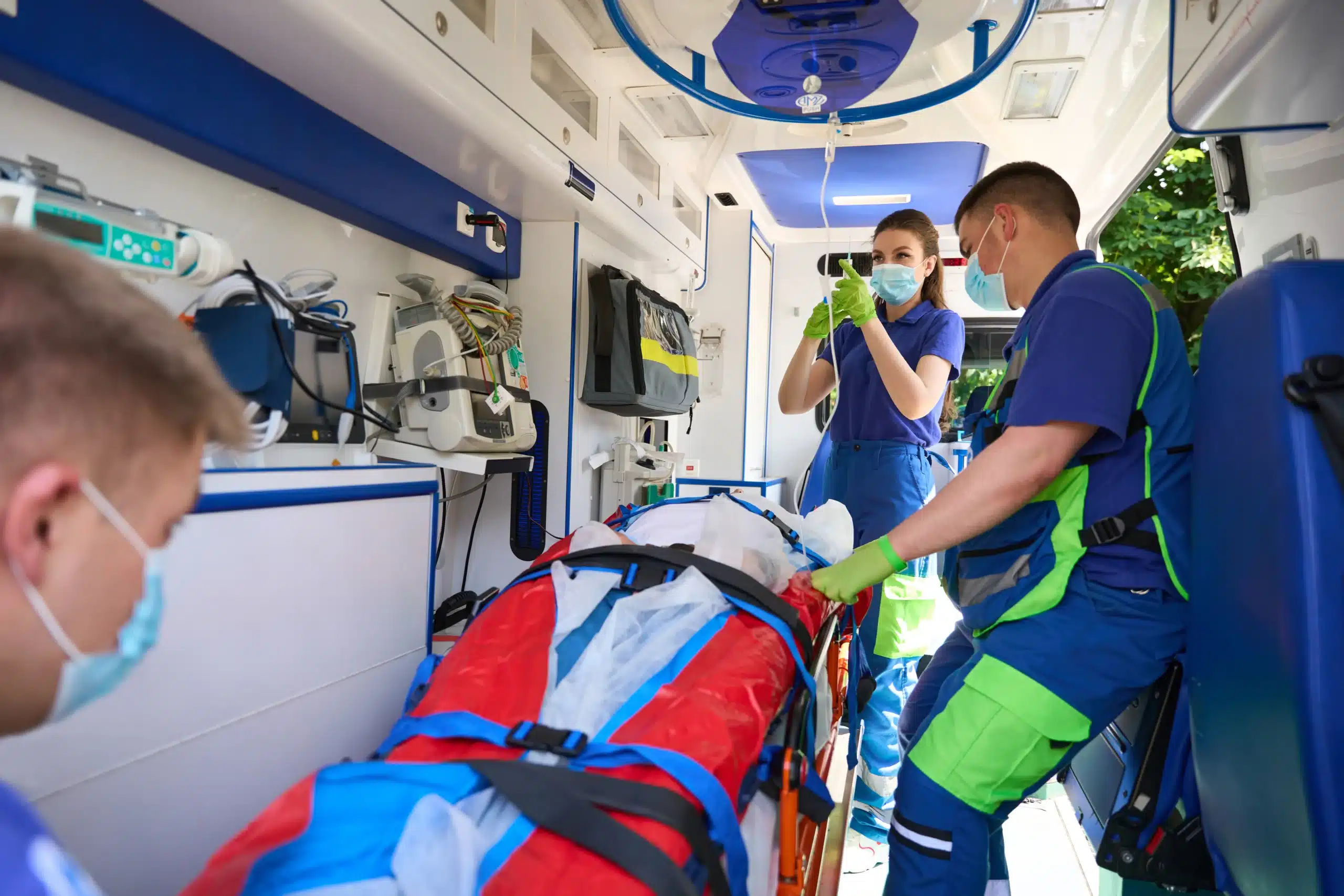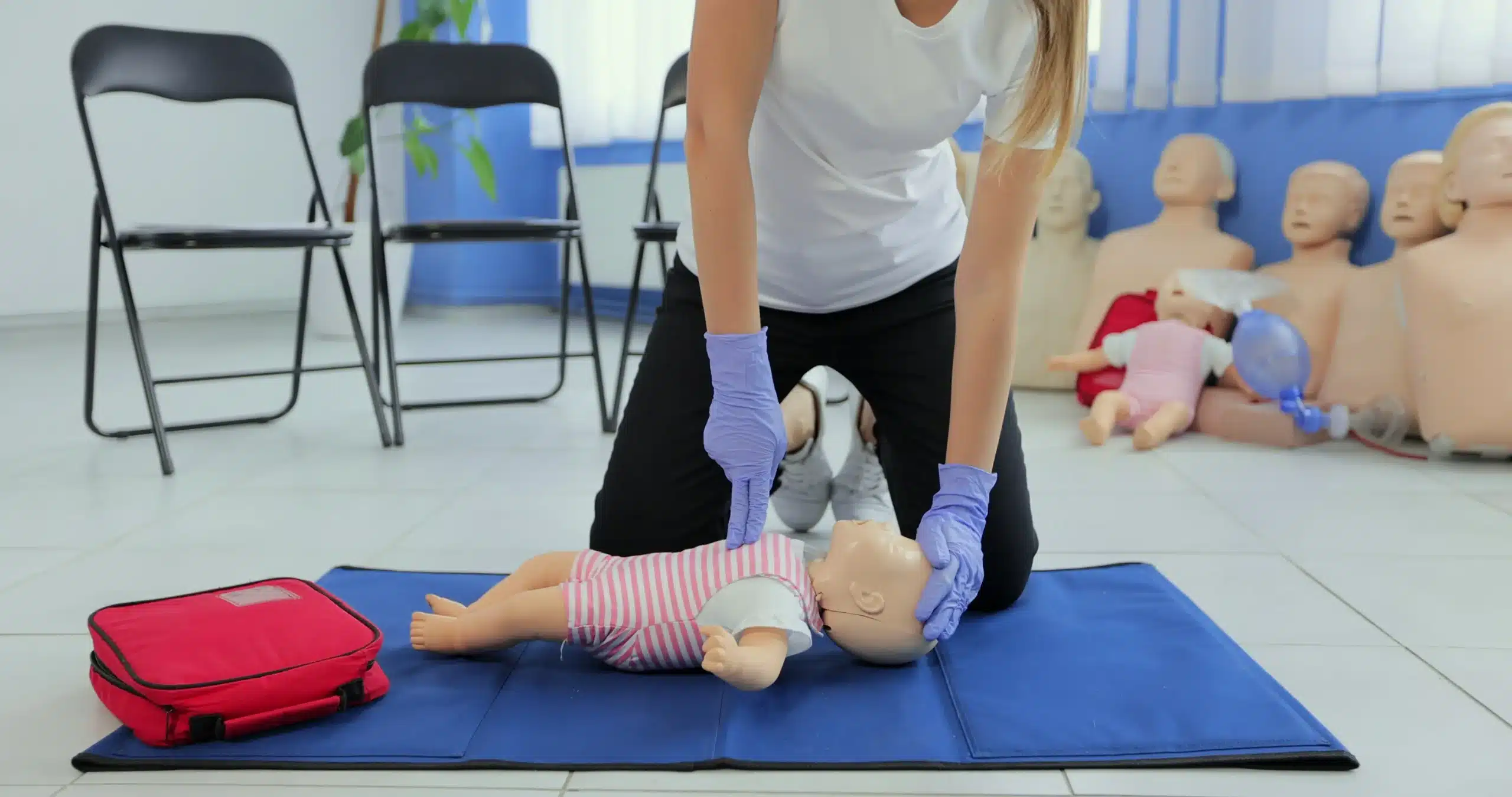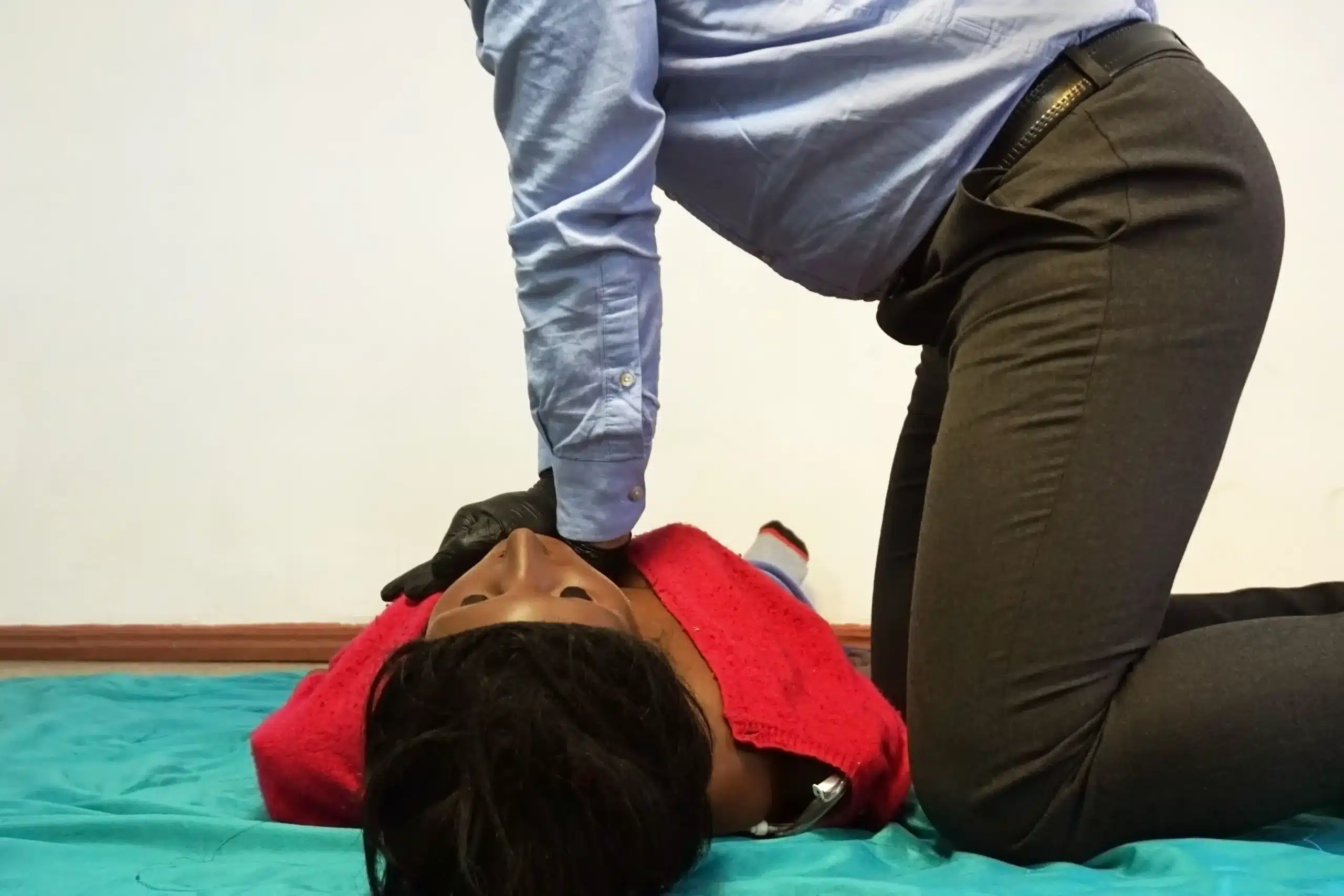Are you looking for a flexible and effective way to gain life-saving skills in Berkeley? PALS HeartCode training offers a blended learning approach to Pediatric Advanced Life Support, combining online coursework with hands-on skills sessions. This dynamic program allows you to learn at your own pace and apply your knowledge in realistic scenarios. Whether you’re a healthcare professional, a childcare provider, or simply someone committed to the safety of children, PALS HeartCode in Berkeley can equip you with the confidence and competence to respond to pediatric emergencies. This article will explore the key features of PALS HeartCode, the benefits of this blended learning approach, and how to get certified in Berkeley.
Key Takeaways
- PALS HeartCode blends online learning with hands-on practice: This flexible format lets you learn at your own speed and then demonstrate your skills in person, making it easier to fit training into a busy schedule.
- Interactive modules and simulations enhance learning: The online portion uses engaging content and realistic scenarios to reinforce key concepts and build critical thinking skills, leading to a deeper understanding of the material.
- PALS certification provides essential skills and confidence: This training equips you to effectively manage pediatric emergencies, enhancing your professional capabilities and providing peace of mind in critical situations.
What is PALS HeartCode?
What is PALS HeartCode?
PALS HeartCode is the American Heart Association’s (AHA) blended learning course for Pediatric Advanced Life Support. It combines online coursework with an in-person skills session, giving you the flexibility to learn the material at your own pace online before demonstrating your skills to an instructor. This blended learning approach lets you focus on the online portion, then practice what you’ve learned in a hands-on environment. The PALS HeartCode program offers a modern and convenient approach to this critical training.
Key Differences from Traditional PALS
The key difference between PALS HeartCode and traditional PALS lies in the flexible, self-paced online learning component. Traditional PALS courses typically involve classroom lectures and demonstrations. HeartCode PALS, on the other hand, lets you complete the cognitive portion online using interactive modules and simulations. This personalized learning experience adapts to your progress, focusing on areas where you might need more practice. While the online portion is self-paced, the in-person skills check-off for HeartCode PALS still takes approximately four to five hours. This ensures you have ample time to practice and refine your skills with a certified instructor. Regardless of which format you choose, both HeartCode PALS and traditional PALS adhere to the same AHA guidelines and result in the same AHA PALS Course Completion Card. Learn more about our low price guarantee on our website.
How is PALS HeartCode Structured?
PALS HeartCode blends online learning with hands-on skills practice. This approach lets you learn at your own speed before demonstrating your skills to a certified instructor. This flexible structure accommodates busy schedules and ensures you receive thorough training.
Online Learning
The online portion of PALS HeartCode uses interactive modules and simulations. You’ll work through case studies and make decisions in realistic scenarios, building knowledge and critical thinking skills. This self-directed learning allows you to focus on areas where you need extra practice and review content as needed.
Hands-On Skills Assessment
After completing the online modules, you’ll attend an in-person skills session with an AHA PALS Instructor. This session typically lasts about five hours, including breaks. You’ll demonstrate the skills you learned online, receive feedback from your instructor, and practice until you’re proficient. This crucial hands-on session helps you master essential techniques and build confidence.
Advanced eLearning Modules
PALS HeartCode also includes advanced eLearning modules covering specialized topics. While the core online portion covers fundamental PALS concepts, these additional modules.pdf) allow you to explore specific areas relevant to your practice. You’ll choose at least six of the nine available PALS Plus Advanced eLearning Modules to complete your training. This personalized approach ensures you gain the most applicable knowledge for your professional needs.
Find PALS HeartCode Classes in Berkeley
Safety Training Seminars Offerings
Safety Training Seminars offers a comprehensive PALS (Pediatric Advanced Life Support) certification course through the American Heart Association (AHA). This course equips healthcare providers with the skills to respond confidently during pediatric emergencies. Our PALS certification is priced at $290, covering the online portion, the required skills testing session, and your official AHA certification card upon successful completion. Learn more about our AHA courses, including PALS on our website. We also offer a low price guarantee.
Other Local Providers
Berkeley has various CPR and first-aid training providers. This range of options reflects the community’s dedication to ensuring residents can access these vital skills. Exploring different providers helps you find the best fit for your schedule and learning style. Check out our Northern California CPR directory for more options.
Class Schedules and Registration
Our PALS HeartCode classes run throughout the week, Monday through Sunday, between 7 am and 6 pm. We’re located at 1700 Solano Ave., Suite F, Berkeley, CA 94707. Visit our website to view upcoming course dates and register for a PALS HeartCode class. Contact us with any questions or for help with registration. We’re here to make this important training accessible and convenient.
PALS HeartCode Costs & Value in Berkeley
Course Fees and Additional Costs
Understanding the cost of PALS HeartCode certification is an important first step. In Berkeley, you can expect to find PALS certification, including the online course, skills testing, and certification card, for around $290. Safety Training Seminars works hard to keep our training affordable and competitive. Some providers may offer a discounted rate (around $175) if you already own the PALS student manual, so it’s always a good idea to ask. Keep in mind that this lower price usually means the online portion is a separate purchase. The online portion typically requires 3–4 hours to complete, while the in-person skills session takes about 30–40 minutes.
Return on Investment for Healthcare Professionals
For healthcare professionals, PALS HeartCode certification is more than just a requirement—it’s a vital investment in your career. This training equips you with the skills to confidently assess and manage pediatric emergencies, providing advanced life support when it matters most. The blended learning format of HeartCode PALS, combining online coursework and hands-on practice, allows you to learn at your own pace and apply your knowledge in a realistic setting. The ability to respond effectively in critical situations involving infants and children significantly enhances the quality of care you provide, making PALS certification invaluable for your professional growth and peace of mind. The American Heart Association offers various PALS course options to fit your learning style and schedule.
Benefits of PALS HeartCode
PALS HeartCode offers several advantages for healthcare providers seeking certification. Its blended learning approach combines online convenience with practical skills sessions, creating a flexible and efficient learning experience. Let’s explore some key benefits:
Flexible, Self-Paced Learning
HeartCode PALS blends online learning with hands-on practice. This flexible format lets you learn the material at your own speed and then demonstrate your skills in person. This approach accommodates busy schedules, allowing you to complete the online portion when it’s most convenient. You can review challenging concepts multiple times and move quickly through material you’re already familiar with. This personalized learning experience helps you retain information and build a strong foundation for the in-person skills session. Safety Training Seminars offers this convenient training in Berkeley.
Interactive and Adaptive Learning Technology
The PALS HeartCode program uses interactive and adaptive learning technology to enhance your educational experience. The program’s personalized adaptive algorithm guides students on the most efficient path to PALS mastery. It follows a continuously adapting learning path personalized by your performance and self-reported confidence level related to each question. This dynamic approach ensures you focus on areas where you need the most practice. The interactive elements keep you engaged and reinforce key concepts, leading to a deeper understanding of the material. Learn more about PALS course options from the American Heart Association.
Realistic Scenario Practice
While the online portion provides foundational knowledge, the hands-on session for HeartCode PALS allows for realistic practice. These sessions typically last around five hours with breaks, providing ample time to apply your knowledge and refine your skills. You’ll work with experienced instructors and participate in simulated pediatric emergencies, building your confidence and preparing you for real-world situations. This practical experience is essential for mastering the critical skills needed to provide effective care.
Get PALS HeartCode Certified
Getting your PALS HeartCode certification is a straightforward two-step process designed to be flexible and accommodate your schedule.
Completion Requirements
First, complete the online portion of the PALS HeartCode course. This self-paced component lets you work through the material at your own speed, reviewing key concepts and practicing your skills virtually. After finishing the online modules, you’ll move on to the hands-on skills session. This crucial step involves demonstrating your learned skills with an American Heart Association (AHA) instructor or a HeartCode compatible manikin. Plan for this in-person session to take about five hours, including breaks.
Certification Validity and Recognition
After successfully completing both the online and hands-on portions of the PALS HeartCode training, you’ll receive your PALS Provider Course Completion eCard. This eCard is valid for two years and is equivalent to the certification earned through the traditional PALS course. The AHA PALS Course Completion Card is widely recognized and accepted across various healthcare settings, ensuring your qualification is portable and respected.
Renewal Guidelines
Your PALS certification is valid for two years. To maintain your credentials and stay up-to-date with the latest AHA guidelines and best practices, renew your certification before it expires. Renewal typically involves completing a PALS renewal course, which, similar to the initial certification, includes both online and hands-on components. You can find more information on PALS renewal courses offered by various providers in the Bay Area. Staying current with your PALS certification ensures you’re always prepared to provide the highest quality care.
Who Needs PALS HeartCode Training?
PALS HeartCode training equips individuals with the knowledge and skills to respond effectively to pediatric emergencies. While certain professions require this certification, many others benefit from having these life-saving skills.
Healthcare Professionals and Students
PALS HeartCode certification is essential for healthcare providers who regularly work with children, including physicians, nurses, paramedics, and respiratory therapists. It provides the training necessary to recognize and manage life-threatening conditions in infants and children. This training plays a crucial role in many pediatric emergencies, empowering healthcare professionals to deliver timely and appropriate interventions. For students pursuing careers in healthcare, PALS training offers a valuable foundation for future practice.
Childcare Providers and Educators
While not always mandatory, PALS HeartCode training is highly recommended for those working in childcare settings and educational institutions. Teachers, daycare providers, camp counselors, and other individuals responsible for the well-being of children can greatly benefit from this specialized training. It goes beyond basic CPR to address specific pediatric emergencies, ensuring a higher level of preparedness in these environments. The availability of CPR and first-aid training demonstrates a commitment to safety, and PALS enhances this commitment by focusing on the unique needs of young patients. Having trained staff can provide peace of mind to parents and administrators alike.
First Responders
First responders, such as police officers, firefighters, and emergency medical technicians (EMTs), are often the first on the scene of an accident or medical crisis. PALS HeartCode training can be invaluable for these professionals, enabling them to provide immediate, effective care to pediatric patients before advanced medical help arrives. While a PALS course focuses on healthcare providers directly involved in managing pediatric emergencies, the skills and knowledge gained can significantly enhance the response capabilities of first responders in critical situations. This additional training can make a profound difference in the outcome of a pediatric emergency.
Prepare for PALS HeartCode Success
Getting ready for PALS HeartCode involves understanding the prerequisites, gathering your study materials, and making the most of both the online and in-person components. A little prep work goes a long way!
Prerequisites and Study Materials
The PALS HeartCode course blends online learning with a hands-on skills session. You’ll begin with the HeartCode® PALS online portion and at least six of the nine PALS Plus Advanced eLearning modules.pdf). This online coursework is a prerequisite for the in-person skills checkoff with an AHA PALS Instructor. While the American Heart Association recommends having the PALS textbook or e-manual, it isn’t required for the online portion, giving you some flexibility.
Tips for Effective Online Learning
The online PALS HeartCode training uses adaptive learning technology. This means the program adjusts to your learning pace and knowledge gaps, creating a personalized learning experience. Embrace this feature! Don’t rush through the material. Take your time to absorb the information and use the online resources available. The time needed to complete the online portion varies from person to person, so plan accordingly.
Maximize the In-Person Skills Session
The in-person skills session is where you’ll put your knowledge into action. This session typically lasts about five hours, including breaks, and provides a crucial opportunity to practice your skills and receive feedback from a certified instructor. During this time, you’ll participate in various activities, including self-directed learning, interactive probes, and cognitive assessments. Come prepared to actively participate and ask questions. This hands-on component is essential for mastering the skills needed to provide effective pediatric advanced life support.
Enroll in PALS HeartCode in Berkeley
Now that you understand the benefits of PALS HeartCode certification, let’s discuss how to enroll in a course in Berkeley. These steps will guide you through finding the right provider, registering for the course, and preparing for your first session.
Choose the Right Provider
Finding a reputable provider is the first step. Look for a training center offering American Heart Association-certified courses. Safety Training Seminars, for example, provides various AHA courses, including PALS HeartCode in Berkeley, ensuring your certification meets industry standards and is widely accepted. Check our Northern California CPR directory for more options. It’s always a good idea to compare a few different providers before making a decision. Consider factors like instructor experience, course fees, and schedule flexibility. Our low price guarantee ensures you’re getting the best value.
What to Expect During Registration
Registering for PALS HeartCode is typically straightforward. Many providers, including Safety Training Seminars, offer flexible scheduling. You can often find PALS classes running throughout the week, with various time slots to accommodate busy schedules. Expect to provide some basic information during registration, such as your name, contact details, and preferred course dates. Some providers may also ask about your prior healthcare experience. Once you’ve completed registration, you’ll receive confirmation and further instructions.
Prepare for Your First Session
PALS HeartCode training blends online learning with a hands-on skills session. The online portion allows you to learn at your own pace, covering essential concepts and procedures. The length of this online component varies depending on your prior knowledge. The in-person skills session typically takes around five hours, including short breaks. To prepare, ensure you have reliable internet access for the online modules. Review any pre-course materials provided by your training center. Knowing the time commitment for both the online and in-person components will help you plan accordingly and arrive fully prepared. Contact us if you have any questions.
Related Articles
- AHA PALS Classes in Bay Area, CA – San Francisco Bay Area CPR Classes
- CPR Certification in San Jose: Your Complete Guide – San Francisco Bay Area CPR Classes
- CPR, BLS, ACLS, PALS, and First-aid classes in SF Bay Area, CA
- CPR Training in Sacramento: Your Ultimate Guide – San Francisco Bay Area CPR Classes
- BLS Classes in Sacramento: Your Complete Guide – San Francisco Bay Area CPR Classes
Frequently Asked Questions
What is the main difference between PALS HeartCode and a traditional PALS course? HeartCode PALS allows you to complete the cognitive portion of the course online at your own pace, while traditional PALS courses typically involve in-person lectures and demonstrations. Both formats require an in-person skills check-off with a certified instructor and lead to the same AHA PALS Course Completion Card.
How long does it take to complete the PALS HeartCode training? The online portion of PALS HeartCode is self-paced, so the completion time varies. However, plan for several hours to work through the modules and simulations thoroughly. The in-person skills session typically takes about five hours, including breaks.
What is included in the cost of PALS HeartCode certification at Safety Training Seminars? The $290 fee covers the online portion of the course, the in-person skills session, and your official AHA PALS Course Completion Card. Some providers may offer a lower price if you already own the PALS student manual, but this often means purchasing the online portion separately.
Who should consider taking PALS HeartCode training? PALS HeartCode is essential for healthcare professionals who work with children, but it’s also highly beneficial for childcare providers, educators, and first responders. Anyone responsible for the well-being of infants and children can gain valuable skills from this training.
How do I renew my PALS HeartCode certification after it expires? PALS certification is valid for two years. To renew, you’ll need to complete a PALS renewal course, which typically includes both online and in-person components, similar to the initial certification process. Check with your training provider or the American Heart Association for renewal course options.


